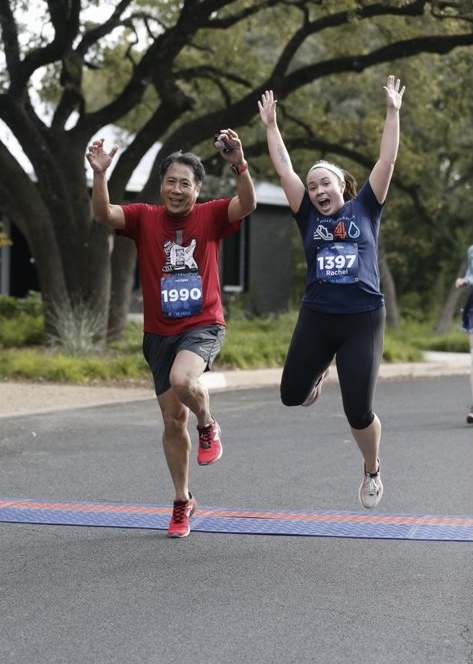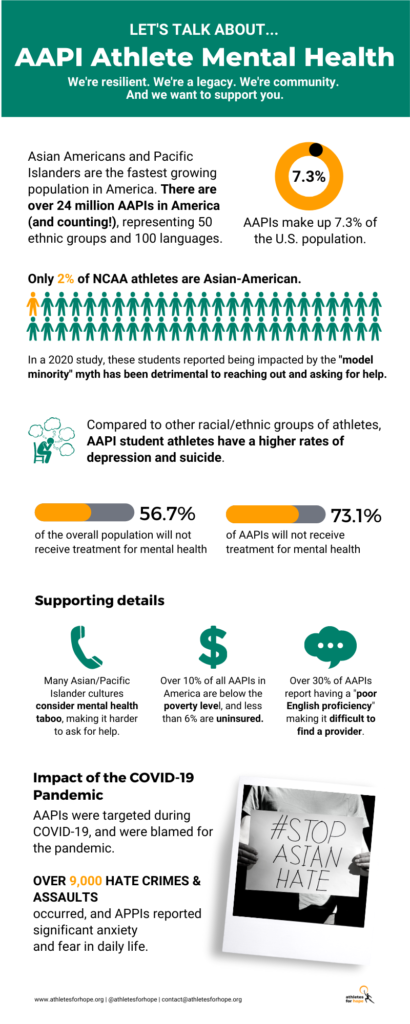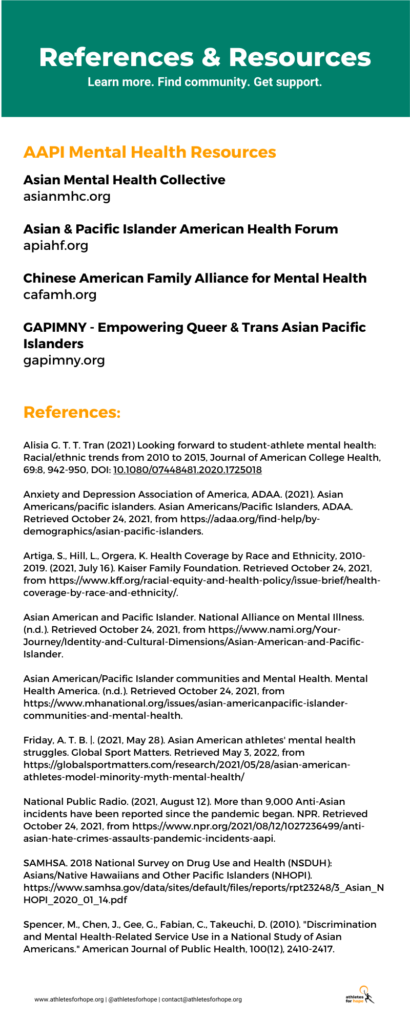AFH Staff Opinion
Our Work Must Go On: What’s Changed Since Our First Mental Health Article?
Written by Suzanne Potts, LMSW, MPH & Rachel Chao
In 2019, we published an article talking about the real need for resources for athletes to protect and support their mental health. We shared these startling facts: approximately 35% of elite athletes experience mental health challenges, and only 10% of collegiate athletes in need of mental health resources actually seek them out. When we published it, there was a small minority of athletes who were willing to share parts of their stories, and mental health was only starting as a more common cultural conversation.
In 2019, we could not have imagined where this conversation would go.
Three years later, we’re still committed to elevating stories of athletes’ mental health journeys, and advocating for increased accessibility, awareness, and acceptance of athlete mental health resources.
Three years later, we’re still committed to elevating stories of athletes’ mental health journeys, and advocating for increased accessibility, awareness, and acceptance of athlete mental health resources. We solidified our dedication to athlete mental health by launching Whole Being Athlete in 2021. We are grateful and humbled to lift up the voices of our Mental Health Ambassadors, who have had the courage to share their own stories. We have worked with remarkable partners such as Doc Wayne, Hilinski’s Hope, The Hidden Opponent, PBS’ Well Beings and others who inspire us with their activism and courage. We have committed to consistently adding resources to our Mental Health Resource Hub, to ensure that help is never that far away. Athletes at all levels, from high schoolers to Naomi Osaka, have spoken out more and more about the importance of protecting their own mental health and supporting others to do the same. Organizations and teams have begun to do more work to re-examine how their environment impacts the mental health of their athletes.
In the last three years, so much has changed, and yet so much more work needs to be done. This conversation continues as a reaction to devastating losses in the sports world. In the spring semester of 2022, there have already been five confirmed student athlete deaths by suicide – each of these losses representing more than an athlete, but a person with hopes and goals and a community that misses them daily. In the last few weeks, we have had the opportunity to speak to current, future, and former athletes who have reached out to us, asking what they could do to help. Each of them have shared stories of their own challenges, and feelings of isolation, anxiety, or despair they experienced as an athlete. With these conversations, we heard a common theme of gratitude that this topic is coming up more and more… and the push to ensure that other athletes know that they are not alone.
Our work is just beginning, and this conversation is nowhere close to ending. Where do we go from here?
We go with courage, to start hard conversations. We created the Pledge to Reach Out to encourage athletes of all levels and abilities to reach out to their teammates who may be struggling. We will continue to reflect as an organization, to recognize how to better take care of ourselves, and our athletes. We will take action when needed.
We go with recognition of the lives that we’ve lost. We remember the humanity of the athletes who have died by suicide. We think of their family, friends, and teammates, and will continue to hold them in our hearts. We are inspired by the families and friends involved at Hilinski’s Hope, Morgan’s Message, The Hidden Opponent, Doc Wayne, and so many other incredible organizations invested in supporting athlete mental health.
We go with resources and hope. We will continue to give a platform for stories of those who are willing to share their stories, to remind people that there is help and support waiting for them, whenever they’re ready to access it. We will continue to share hotlines, websites, and organizations that provide mental health support. We will continue to prioritize education around mental health and wellness. We will commit to bringing together athlete voices, stories, resources and more to elevate opportunities to reduce the stigma surrounding mental health.
Wherever we go next, we’re ready for the challenges ahead. We hope you will join us.






